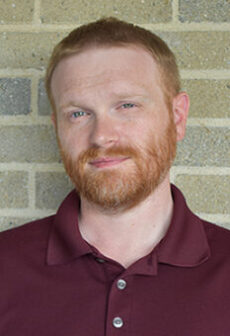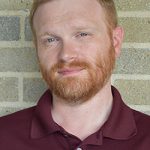Jesus alone supplies lasting wholeness

Shawn Reeves
By Shawn Reeves
Sixteenth Sunday in Ordinary Time / July 18
Jeremiah 23:1-6; Psalm 23:1-3,3-4,5,6; Ephesians 2:13-18; Mark 6:30-34
In today’s Gospel, Jesus tells the apostles, “Come away by yourselves to a deserted place and rest a while.” This is pasturing language. Using a word often translated in the Bible as simply “the wilderness,” Jesus calls them to a remote place of reflection and spiritual nourishment. Just as a shepherd would lead the flock out to graze in a secluded wilderness, so Jesus now leads his apostles as they return from an exhausting mission of ministry.
The apostles have been out tirelessly shepherding others to the point of having “no opportunity even to eat,” and now they are in need of being shepherded themselves by Jesus. They are in need of being fed physically and spiritually, of finding rest bodily and in soul. But the attention of the Shepherd is quickly multiplied.
Why multiplied and not divided? The Church speaks of all the faithful as “wayfarers” on the way to heaven, sojourners traveling through this life toward our final destination with the Lord. When sheep sojourn with the flock, they graze on ground vegetation. If they lose sight of the shepherd, they may trail off on their own, meandering from one patch of food to the next. Without the shepherd they have no direction and wander aimlessly.
The shepherd keeps a close eye on those who are near and those who are far off, ensuring the flock sojourns in security, leading them safely to nourishment and then home. For Jesus, there is no “dividing wall” between those whom He has called and those roaming in pursuit of him. They are all one flock. They are all fellow sojourners.
UNCHANGING COMPASSION
It would seem that Jesus is repeatedly changing his mind. At Cana, he agrees to a miracle he had not intended to perform, at the request of His mother (John 2:1-12). On the way to healing a dying girl, he pauses to converse with a suffering woman (Mark 5:21-34). And in today’s Gospel, He spontaneously commits to ministering to the wandering crowd after settling the apostles in to rest. I suspect, though, it is less about Jesus changing as it is about Jesus being unchanging in compassion.
While his human decisions might be alterable, his divine benevolence is immutable. It is His nature to supply security and wholeness no matter the occasion. In fact, St. Paul sees this as a key element of the entire Gospel message.
In our second reading, St. Paul uses a term four times, which we commonly translate as “peace.” However, the everyday modern usage of peace is perhaps too weak and imprecise to communicate the full depth of the biblical word (Eirene in Greek). It is a term connected to the act of tying or joining things together, carrying with it the notions of harmony, security and (most importantly) wholeness. When St. Paul declares that Jesus “preached peace,” he does not mean Jesus merely announced an end of conflict, a cessation of animosity, or the establishment of emotional comfort.
It appears in our experiences that the universal, fundamental desire is for wholeness. All the things we chase after the most (food, security, intimacy, accomplishment) are ultimately all pursuits of wholeness; or, rather, they are pursuits of filling an absence of wholeness. It is, perhaps, why we speak of being “fulfilled” through these things.
THE RUB
The rub is that such fulfillment is typically ephemeral, because none of these things are equipped to supply lasting wholeness. And so we often wander through life, desperately seeking wholeness, foraging on whatever happens to be before us, like shepherdless sheep meandering in sojourn without firm direction, forgetting (at times) that “He is our peace,” our wholeness. For Jesus, alone, can supply a lasting wholeness — “access in one Spirit to the Father.”
“Established peace,” wholeness with God — this is what the crowd in today’s Gospel longed for in Jesus. For this alone truly “refreshes the soul.”
—
Shawn Reeves has served as the director of religious education at St. John’s Catholic Newman Center in Champaign since 2001. He and his family attend St. Elizabeth of Hungary Church in Thomasboro.






